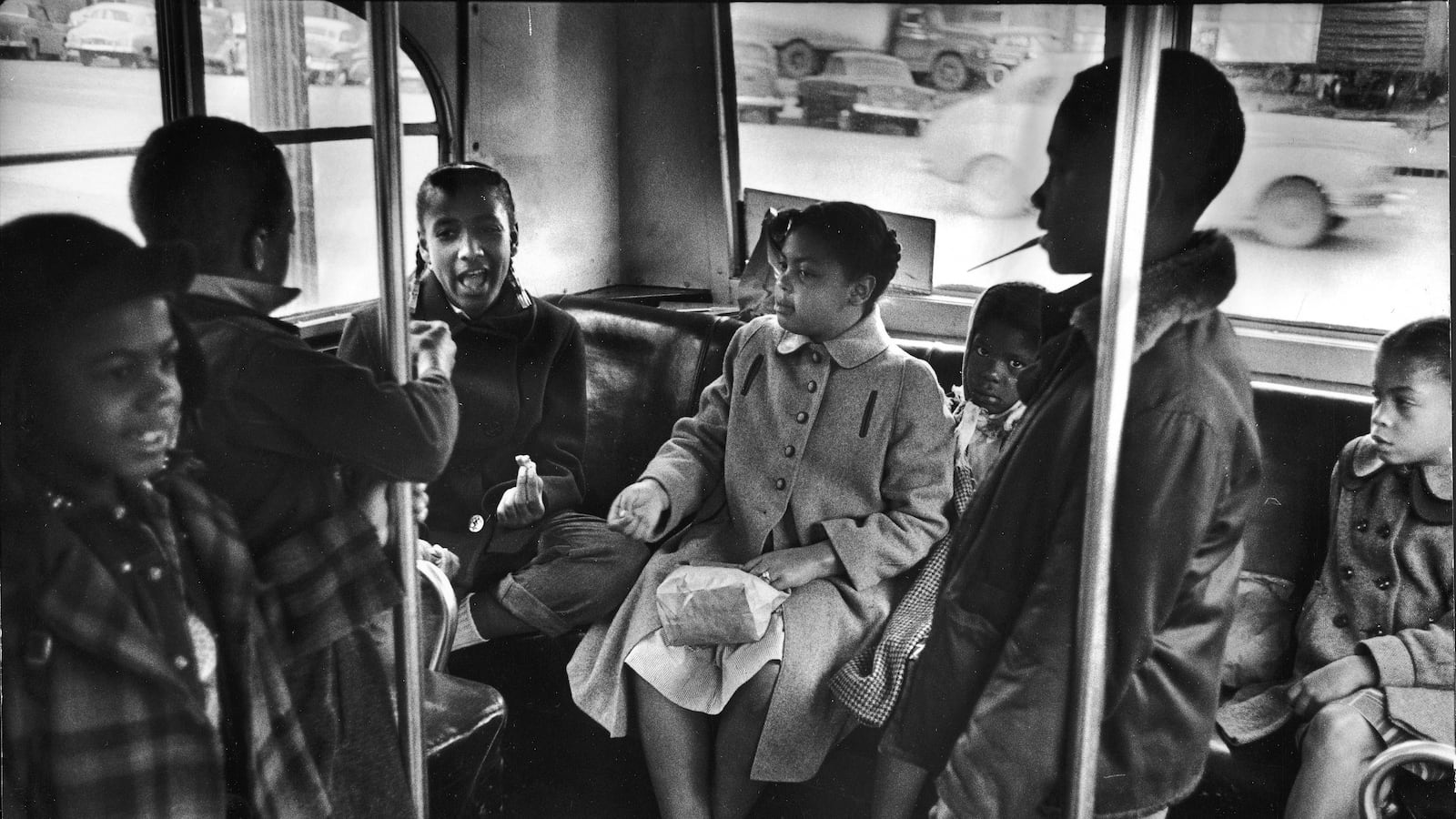Linda Brown, whose name became part of American history through the Brown v. Board of Education case, died Sunday.
She became the center of the legal and political battle to integrate U.S. schools after she was denied access to an all-white school down the street in Topeka, Kansas in 1950. Her father and several other parents sued with the help of the NAACP, and their case made it to the Supreme Court.
When they won, it set a lasting legal precedent. Brown was attending an integrated junior high school by then, and she later recalled the initial desegregation of local elementary schools going smoothly. But over the course of her life, she saw the reality of school integration fall short, locally and nationally.
In Topeka, where Brown would send her own children to public school, some elementary schools remained disproportionately black. In 1979, Brown was part of a lawsuit to re-open the case, which eventually resulted in a 1993 desegregation order for the city’s school district. Across the country, schools remain highly stratified by class and race; in many districts, court orders have ended and schools have quickly resegregated.
Brown seemed ambivalent about the spotlight that came with her name, and some news articles recount failed attempts to reach her. But she often spoke at anniversaries of the 1954 ruling — and while she called it a victory, she wasn’t shy about expressing disappointment at just how much the Brown case itself didn’t achieve.
Here she is, telling her own story over the course of a lifetime.
“I was kind of afraid at first. I didn’t talk about it very much, I guess, because I was afraid it would get back to someone who would make trouble.”
“Last year in American history class we were talking about segregation and the Supreme Court decisions, and I thought, ‘Gee, some day I might be in the history books!’”
— 1961 interview with the New York Times, when Brown was 17
“It was not the quick fix we thought it would be.”
— 1984 New York Times interview marking the 30th anniversary of the ruling
“Brown was a very necessary victory. It opened up doors to entertainment, housing, education, employment. All facets of black life was affected by Brown. After 30 years, yes, you do feel that Brown is still not fulfilled. Which is very disheartening to me. I find that after 30 years, desegregation of schools is still very much the issue of today.”
— May 1984 interview with ABC News, marking the 30th anniversary
“I was a very young child when I started walking to school. I remember the walk as being very long at that time. In fact, it was several blocks up through railroad yards, and crossing a busy avenue, and standing on the corner, and waiting for the school bus to carry me two miles across town to an all black school. Being a young child, when I first started the walk it was very frightening to me um, and then when wintertime came, it was a very cold walk. I remember that. I remember walking, tears freezing up on my face, because I began to cry because it was so cold, and many times I had to turn around and run back home.”
— 1985 interview for “Eyes on the Prize: America’s Civil Rights Years”
“It is very disheartening. We are still going through the old arguments.”
— 1989 interview, again in the New York Times, at age 46
“We feel disheartened that 40 years later we’re still talking about desegregation. But the struggle has to continue.”
— 1994 Washington Post story, “Ruling’s Promise Unkept In Topeka,” on the ruling’s 40th anniversary
“It’s disheartening that we are still fighting. But we are dealing with human beings. As long as we are, there will always be those who feel the races should be separate.”
— 1994 New York Times story, “Aftermath of ’54 Ruling Disheartens the Browns”
“To me, the impact of Brown is best seen in the increasing numbers of black professionals today. These are the people that, after 1954, were able to have some degree of choice. This surely made a difference in their aspirations and their achievements.”
“I ran across a quote, in a new book by one of our black women authors — her name is Mildred Pitts Walter — that I believe says it all. ‘It is not the treatment of a people that degrades them, but their acceptance of it.’”
— 2004 speech at the Chautauqua Institution, near the ruling’s 50th anniversary


